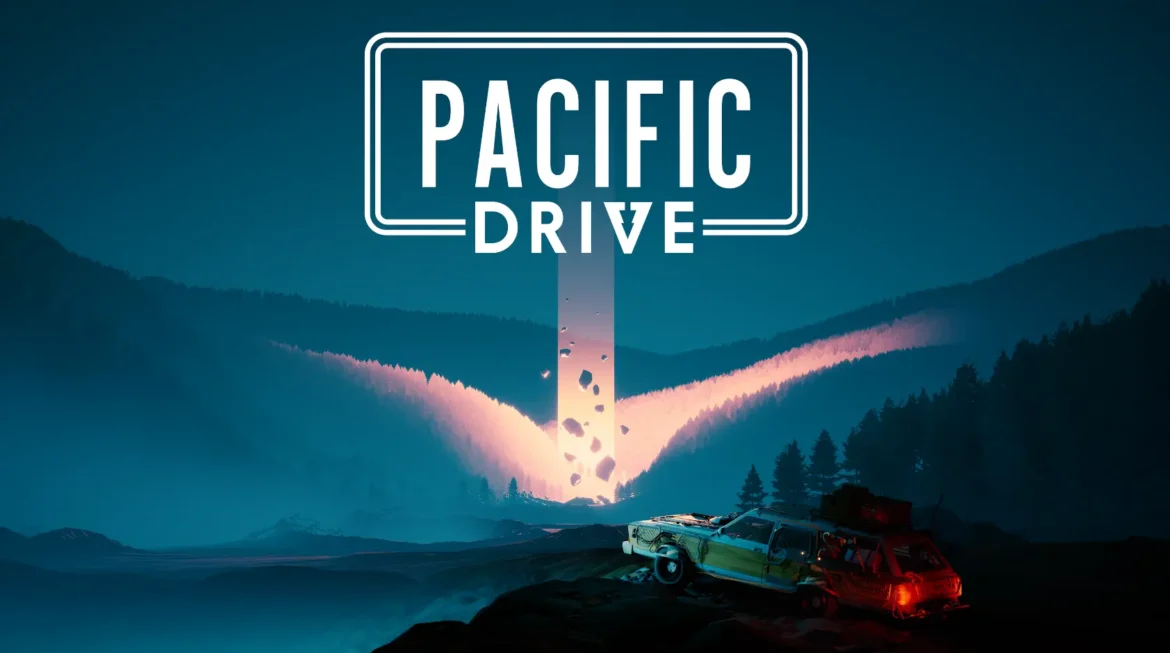Release Date : February 29, 2024
Developer(s) : Ironwood Studios
Publisher(s) : Kepler Interactive
Platforms : PS5, PC
A post-apocalyptic zone completely isolated from the world, reminiscent of S.T.A.L.K.E.R., a Roguelike progression system, and a deadly battle royale storm – this is Pacific Drive’s unique formula for survival and first-person driving from Ironwood Studios. The title takes you back to the 1950s, when a section of Washington’s Olympic Peninsula has been invaded by strange creatures, and quarantined for good. You’re trapped in this zone inside a kind of supernatural station wagon, which asks you to take care of it.
Fuel, Fences, and Fury
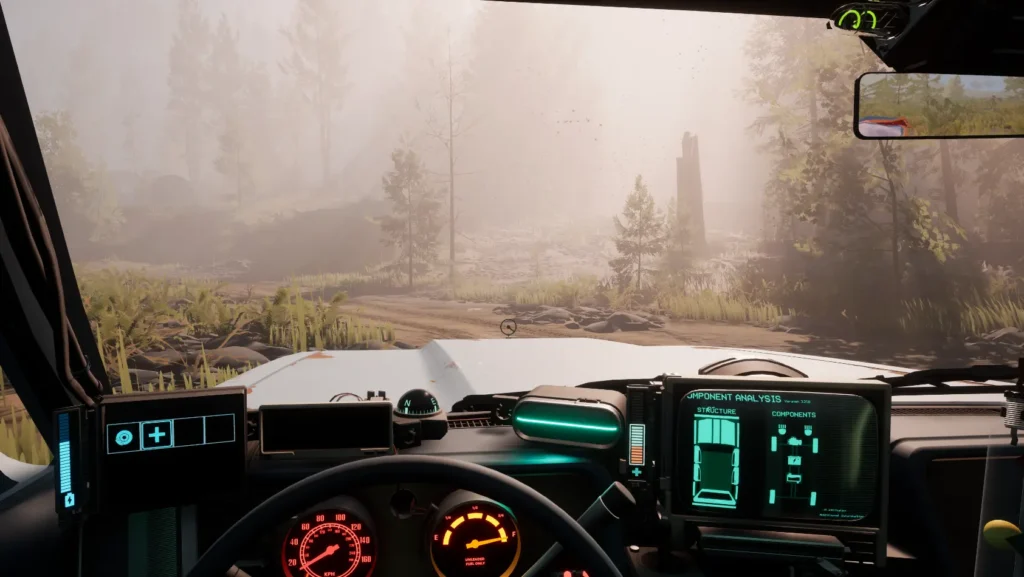
Pacific Drive is quite appealing for its concept: your role is to keep an old, patched-up station wagon in shape in the middle of an apocalyptic zone, a sort of surrealistic reinvention of the Pacific Northwest, filled with countless explosive obstacles and radioactive hazards every two meters. So you begin your journey on a challenging road trip designed to introduce you to the main plot.
Your English better be good at least, otherwise you’ll have to keep trying to read the subtitles while taking a sharp turn, at the risk of misunderstanding an objective that’s already a little confusing. The few speakers who assist you on your journey (via radio) do just enough to make the journey less lonely, while having the heavy task of setting the pace for a game structure that can become repetitive after fifteen hours or so.
Pacific Drive’s map is revealed as you progress, motivating you to investigate what’s left of the Zone, as well as a long-forgotten mystery. During your journeys, you’ll need to keep an eye on the fuel tank of your good old station wagon, make sure the protective panels are holding up to the radiation, turn off the engine at every stop, and plenty of other details that immerse you in the role of post-apo driver, but whose manipulations might have deserved better handling.
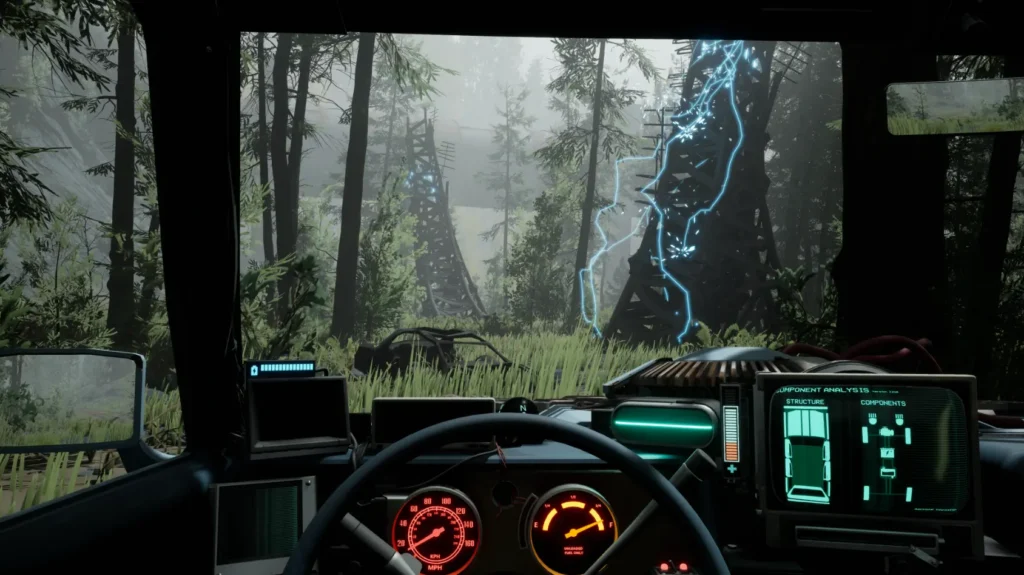
Still, I loved the interfaces available inside the car, turning the key to start the engine, controlling the windshield wipers, and all those pleasant details. A little extra detail: you have to turn your head towards the passenger seat to look at the map, an idea that’s both interesting and annoying when you’re running out of time. It’s not easy to understand this whole universe from the start, but it’s worth the effort.
Once you’ve completed your work in an area, you need to activate a portal that generates a storm with a deadly threat that gradually covers the entire map, something like the zones in Fortnite. Other dangers in the territory, such as radiation or strange figures that approach you when you turn your back, are not so frightening and are simply essential elements that you’ll need to deal with every time.
Survive the Drive While Keeping Your Car Alive
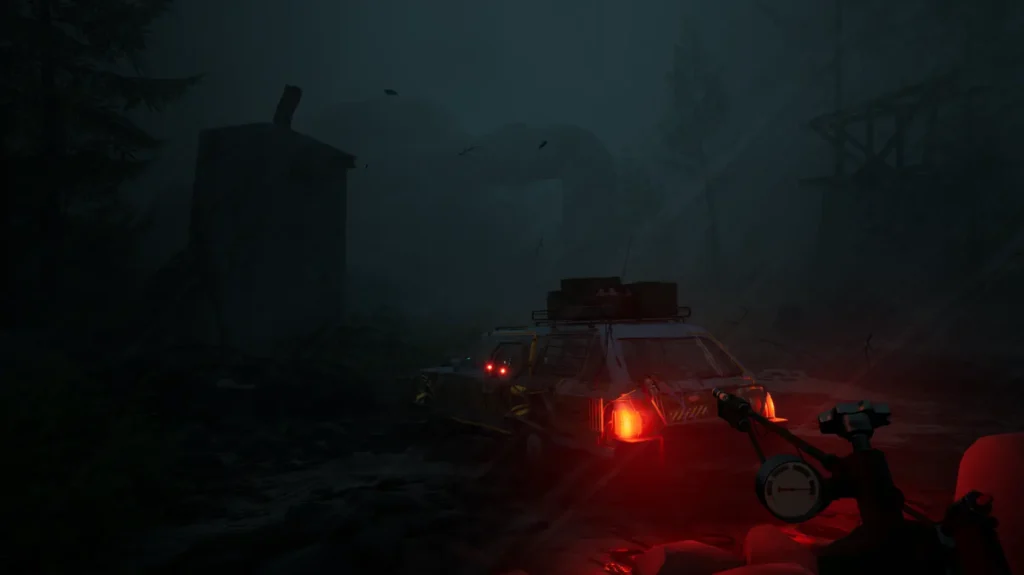
Crafting is an absolute necessity in Pacific Drive, as the condition of your car is usually your main concern, even ahead of the anomalies lurking in dangerous areas. So, if you think you’ll be enjoying the experience as a little road trip on country roads listening to your best songs, that’s not the main focus.
It’s absolutely essential to stop your car every thirty seconds to strip what’s left of some old wreck or to search a truck, otherwise, you’ll find yourself, like me, starting a game with two broken headlights. And I must warn you, the Pacific zone is very dark, even too dark. A feature that justifies the use of glow sticks, but which often proves to be a real liability. In fact, I decided to change a few settings during part of the game, choosing to reduce night-time hours. This made the experience much more comfortable and enjoyable.
By the way, a few settings can change your gaming experience completely, although the sense of accomplishment is definitely affected. For example, you can limit your vehicle’s resource requirements to free up driving time, so that you can enjoy driving through the countryside while listening to the radio.
The soundtrack is by Wilbert Roget ( famous for his work on Star Wars: The Old Republic, Mortal Kombat 11, and more recently Helldivers 2), and includes more than 20 licensed tracks in more or less the same register (no rap, but mostly pop-rock sounds), some of which I still remember after quitting the game, and that’s the sign of a successful soundtrack. In short, discovering these new possibilities in the game’s menu made me much more attracted to it.
Level Up Your Mechanic Skills
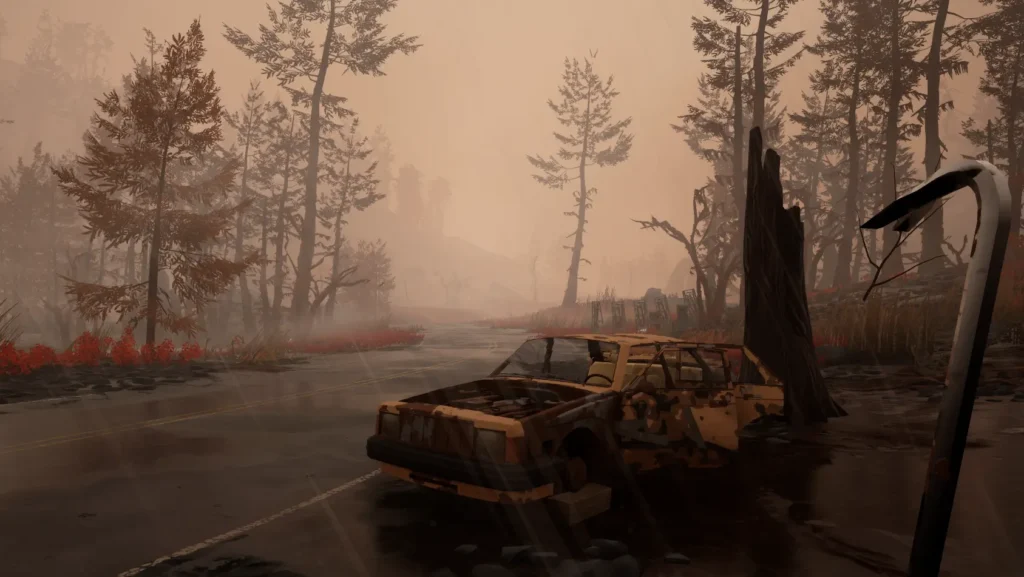
The Zone can sometimes be extremely low on resources, forcing you to constantly sweep the countryside in search of a simple duct tape, which can become quite exhausting. I once scoured an entire road in search of a couple of fuel cans, with no luck. So I decided to complete a few story objectives on foot before resuming my quest for fuel. But after completing these objectives, a script triggered the shrinking of the area and the opening of a portal that I could only pass through by car. I died a slow, cruel, and painful death, wasting over three hours of gameplay, which seems a little unfair. Yes, the title is based on a Roguelike system: if you die, the journey is abandoned and you’re back in the garage, without most of your hard-earned supplies. Another point to be noted is that loading times can be very long.
It’s a good idea to spend as much time as possible in the abandoned garage that serves as your base, where you can gather some precious resources to get back on your feet, which potentially takes up half your game time if you’re really dedicated. It’s also where you fill up your gas tank, recharge your vehicle’s batteries, replace broken parts, make new ones, and most importantly, build additional workbenches and upgrade your existing resources. It takes some time to get used to all the features in the garage and how to use them, but it’s a complete package. After a few hours in your garage, you’ll soon feel like a mechanic, wanting to optimize your vehicle on every trip.
Conclusion
You need to give Pacific Drive the time it deserves to understand its many features and appreciate them properly. But its ambiance and the special relationship you create with your vehicle really elevate the experience to a whole new level of fun. With its appealing concept, Ironwood Studios’ game makes up for a repetitive gameplay loop with a unique touch.
